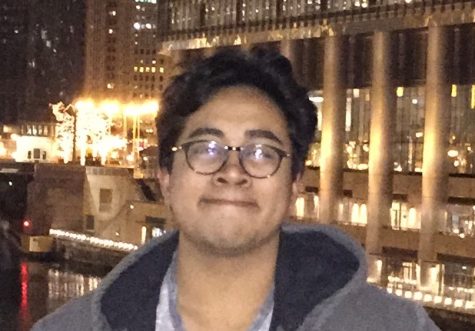Uni’s largely privileged population creates potentially unwelcome climate for lower income students
Uni’s long struggle to achieve diversity has become as much of a staple of the school as its century-old building or eighth-grade class.
Uni has had and continues to have problems when it comes to accurately representing the socioeconomic demographics of the community it draws from, leading to far disproportionately fewer lower income students as well as disproportionately high numbers of wealthier students. While there is no concrete way to determine the economic status of all Uni students, evidence suggests that the student body is disproportionately privileged. As a result, students of lower income have reported feeling that the environment at Uni is apathetic, unreceptive or otherwise unaware when it comes to lower income students and their situations.
Based on data from the American Community Survey in 2013 and U.S. Customs and Border Protection in 2012, less than one percent of Uni students live in an area where the median household income is less than or equal to $30,000.
The economic minority status doesn’t limit itself to the far end of the spectrum either. Students living in an area with a median household income of $50,000 or less are in Uni’s bottom quartile, in a county where the median household income is $46,495. Lower income students say that this uneven composition has created a gap between themselves and their peers.
For example, students describe watching their classmates casually spend far more money than they would ever expect to. Junior Augusta Mansfield recalls attending the French trip and listening with bewilderment to her peers talk about purchasing a handbag for several hundred dollars.
“I can’t always afford to buy food, I just don’t understand it,” Mansfield recounted with a laugh.
Senior Timothy Purnell described how the rate at which his classmates traveled out of the state and out of the country was much greater than he ever did.
Senior Lucia Lombardi was similarly astounded when listening to a classmate talk about purchasing multiple costly guitars within the span of a year.
“If you can’t afford to do that, you’re looking at him, like, that’s not normal,” Lombardi said.
Sophomore Macheila Anderson also relayed how her economic status creates a gap between her and her classmates, saying that seeing her peers with items like iPhones bothers her, because she wants to have such items as well but is unable to get them. Anderson also mentioned how she oftentimes doesn’t feel comfortable inviting people to her house because of her financial status and how different it makes her house from those of her peers.
But what further alienates lower income students is the composition of the remaining student body. Nearly a third of the Uni student body lives in an area where the median household income is $90,000 or greater, but only 5.5% of Champaign County lives in those areas. Additionally, nearly half of the Uni student body lives in an area where the median household income is at least $70,000, but only 19% of Champaign County residents live in those areas.
This distribution creates an atmosphere in which students of upper to upper middle class incomes are considered the norm in addition to lower income students being considered as complete outliers. Lombardi cited a very stark example of this in the form of a classroom activity by U.S. History teacher Bill Sutton.
In the activity, Sutton asks students to raise their hand if they consider themselves lower class, then repeats the question for students who consider themselves middle class or upper class. With the exception of a few students at either end of the spectrum, almost everyone raises their hand to indicate that they are middle class. Despite the fact that many Uni students come from higher income backgrounds, many still consider their own financial status to be the norm rather than the higher percentiles. Therefore, lower income students report feeling isolated from their peers who simply don’t understand the background they’re coming from.
This often comes out in the form of offhand judgemental comments that reveal various presumptions.
“I’ve eaten fast food for dinner the past week and the week before that I just ate ice cream. That’s something that people would judge a lot,” said Mansfield.
Mansfield also talked about similar experiences when she brought Cheez-Its and ramen noodles to school for lunch, both of which she brought because of their relatively cheaper prices. Anderson also recounted experiences with food, in which she too brought ramen to school for its low price and peers commented that it was “unhealthy.” The experience, Anderson said, irritated her. Lombardi likewise talked about her classmates asking questions such as, “Why can’t you go out to lunch?” or “Why can’t you just buy it?” when she was unable to purchase certain items.
Offhanded presumptuous comments were not restricted to food consumption either. Mansfield recalled her classmates suggesting that she get new clothes. Anderson talked about riding the bus for a soccer game when one of her teammates “made a comment on how ‘uncomfortable’ [riding the bus] is.”
“That really irked me because I ride the bus, like, all the time,” said Anderson.
These presumptions often spill over into academics as well. One example cited was college visits, a part of the college process in which students visit potential campuses to figure out which one is a good fit. U.S. News recommends designating at least $1,000 for college visits. Lower income students talked about how college visits were much harder to partake in with their economic status, but they were still expected to by their peers and the school itself.
“People will talk about [college visits] like, ‘When are you doing yours? Oh, you need to do yours!’ […] Like, I can’t pay for that. Nobody even considers the idea that some people can’t,” said Mansfield.
Mansfield also remarked on how AP tests are expected of students despite the fact that they cost nearly a hundred dollars.
Purnell talked about how his peers were able or even expected to take the ACT multiple times and receive tutoring, both of which were never options he considered.
Uni as an institution does little to quell this culture and atmosphere. Although Uni does offer need-based assistance for registration fees and sports, fee waivers for the SAT and ACT, and grants for various activities, the school falls short in several areas. According to counselor Janai Rodriguez, Uni does not currently provide fee waivers for AP tests or driver’s ed classes, although she says they hope to be able to provide them in the future when funding is adequate.
Mansfield, who was able to take a driver’s ed class before fee waivers were removed, said that without the class she wouldn’t be able to hold her job, since her job requires that she drive.
Also, Uni does not provide lunch, which is offered at a free or reduced price for lower income students at public schools. Anderson said that at Jefferson Middle School, which she attended before coming to Uni, she was able to eat using the lunch program, but upon coming to Uni, she often had ramen noodles for lunch.
Anderson also remarked on how students who take the MTD buses to school have to pay $84 to ride for a year, while public schools provide bus rides at no cost.
And for the financial assistance it does provide, Uni appears to do a poor job in making students aware of it. The only apparent reference to financial aid on Uni’s website is in the admissions section, in which it talks about assistance for fees and books. Purnell said that although Uni provides adequate financial aid, a sentiment he shared with other lower income students, the school could do better in advertising it. Purnell said that he wasn’t aware of some financial aid opportunities until his junior year. Mansfield was unaware of SAT fee waivers and said she’d have to search extensively to find the other ones. She also wasn’t sure if she would qualify, suggesting that Uni does not make clear who the financial aid is open to.
Even with fee waivers and financial assistance, there are extracurricular and social activities that are so commonplace in Uni that not participating in them can make a student feel disconnected from their classmates.
One student mentioned that they often have to “pick and choose” what activities they want to participate in. For example, they could either go to prom or the senior trip, but not both.
Expenses for Uni can add up to thousands of dollars, a considerable chunk of household income for many families.
The Gargoyle has estimated the average costs of various academic, extracurricular, and social activities typical at Uni and created a net price calculator:
(Explanations for the prices can be found here)
The result is that lower income students can often feel isolated and distant from their classmates and sometimes even ashamed of themselves.
Mansfield said that the general presumption that students will take standardized tests, go on college visits, and take AP tests makes her feel as if she isn’t performing at an adequate standard.
“It makes me feel like I’m not living up to expectations or like I’m not doing enough. It’s kinda like I’m not doing what I should be doing and everyone else is who is doing it is just better than me,” she said.
When she first came to Uni, Mansfield said she was hurt by comments about her financial status and although she has since learned to own it, she still finds it near impossible to make friends in a school of people who can’t understand her background.
“Only one [of her friends] […] understands at all what it’s like to not have a bunch of money. And it separates me because people judge me for it […] It’s kind of like if I went to another planet and tried to make friends there, it’s very, very separating.” said Mansfield
Anderson said that coming from a lower income background sometimes “puts [her] down” and makes her feel like she “doesn’t really fit in.” She contrasted it with going to a public school, where there was greater diversity and she paid less attention to her economic status. Although she came to Uni with a sense of excitement, she said, she started noticing the differences between herself and her classmates and felt set apart from them.
Among lower income students, there appears to be a consensus that the remedy to these problems is having more discussions about privilege. Anderson said that informing people and creating a greater sense of general awareness of different incomes can lead to less of these incidents. She wants other students to realize that there might be a reason why a student might not be able to go out to lunch or participate in other activities. Mansfield held a similar sentiment, saying that talking about her financial situation with her friends has had a positive impact. She said she hopes lower income students can be given a platform to express their issues, suggesting subfreshman talks or class discussions as potential ones.
“If we just talked about how people’s lives differ from normal Uni people and how sometimes people make me feel like sh*t, I think just talking about that could be really beneficial,” said Mansfield.
Another student said that it was important to recognize that there are “levels of middle class” and that just because a student isn’t impoverished doesn’t mean they aren’t struggling more than their peers financially.
Mansfield said that students often fail to recognize differences in income unless they’re stark. She said that while students can recognize and are aware of poverty in third world countries or other extreme situations, they fail to comprehend “American poor,” as she put it. Multiple lower income students said that they distinguished between their financial status in a national context and their financial status within the context of Uni. Even if they didn’t consider themselves to be poor relative to the nation, they considered themselves poor relative to Uni.
Students agree that simply being aware and considering other financial situations can greatly improve the atmosphere. Current discussions about wealth and classism are few and far between. Since they started in 2014, Agora Unleashed discussions, a popular space for students to talk about social justice issues, have not had wealth or class as a topic once.
Purnell said that in comparison to other social issues, like racism or sexism, classism isn’t discussed at Uni. He believed that this is in part because discussing income is considered “tacky.” Mansfield said that since class isn’t as visible as race or gender and is reflected in more subtle ways, students don’t see it as much and therefore don’t feel the need to talk about it as much.

I started journalism first semester of junior year. In my free time, I like to read and write. I also like superheroes and video games. My favorite superhero...



Smithg113 • Jan 5, 2018 at 6:04 pm
Very interesting topic, appreciate it for putting up. eckdgdcebfekgkde
Ken Salo • May 15, 2017 at 10:26 am
sorry, in a prior comment I forget to include this NYT link to a similar story, enjoy https://www.nytimes.com/2017/04/28/nyregion/school-segregation-nyc-district-3.html
Ken Salo • May 15, 2017 at 10:05 am
excellent journalism on an important issue that begins to speak to a complex social predicament for justice orientated urban planners; how can educators work to overcome the (real estate driven) residential segregation (gentrification) that continues to deepen racial and economic segregation in their schools which , in turn, frustrates their efforts to reduce the so called (racialized and economic) achievement gap.
I introduced this debate to MPAG and in an Agora class on “Race and the (Segregated) City” and would welcome opportunities to further discuss with the author, participants and all other social justice orientated student journalists and activists
Keep up your good work
Elizabeth Murphy • May 12, 2017 at 4:21 pm
Thank you for writing about another kind of diversity.
Elizabeth Majerus • May 11, 2017 at 4:49 pm
Thank you to Umar for writing this important story, and thanks to all the students who shared their experiences. As someone who grew up poor, I really appreciate this conversation. When I was in high school, I felt like I had to try to “keep up appearances” to hide from my socioeconomically more advantaged friends that finances were tight in my home. It was only with my best friend, who also came from a working class background, that I felt comfortable about talking about the material realities of my life. But we all benefit from understanding various ways that different families have different experiences. We can talk about race and gender, even those issues can be contentious, but there’s a greater taboo regarding socioeconomic realities. It’s time to get over that and get to know each other’s realities. We’ll all be the wiser for it.
Mary Walker • May 11, 2017 at 6:27 am
Thank you for the wonderful article! I believe leadership starts with thinking of others first, understanding their situation and doing best to help. Just studying to be smart to make more money can’t take our children further to serve the society better. I believe Uni can be a wonderful school of opportunity where our children can grow not only academically, but also in their humanity. Love your thoughtfulness and courage to bring the issue to the front. Thank you!
Abraham Han • May 10, 2017 at 7:52 pm
This article is amazing. Thank you for creating awareness of this situation at Uni that not everyone talks about (as you said in the article). As someone that is from a lower-income family, I completely relate to this article. I really hope that in the future, Uni will be a place where no one ever feels that they cannot fully participate and be a part of the Uni community because of how much money that they can spend.
Jon Hoekstra • May 10, 2017 at 7:51 pm
Thank you for a well-researched and thoughtful article! This problem is not limited to students. Parents can also do a better job of being mindful about these issues. We should find ways to value what each person brings to the community. This can require some attention and discipline, starting with taking the perspective of “the other.”